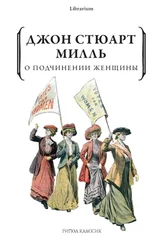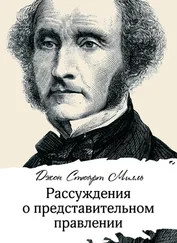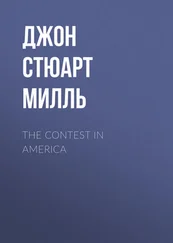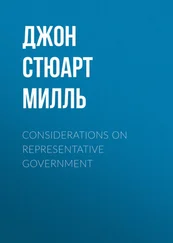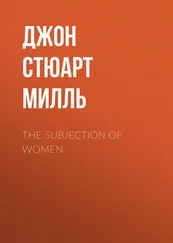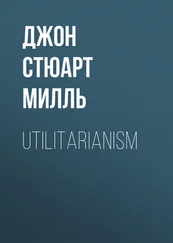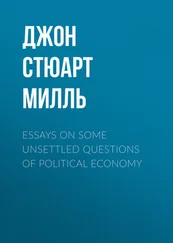Джон Милль - Autobiography
Здесь есть возможность читать онлайн «Джон Милль - Autobiography» — ознакомительный отрывок электронной книги совершенно бесплатно, а после прочтения отрывка купить полную версию. В некоторых случаях можно слушать аудио, скачать через торрент в формате fb2 и присутствует краткое содержание. Жанр: Философия, literature_19, foreign_antique, foreign_prose, на английском языке. Описание произведения, (предисловие) а так же отзывы посетителей доступны на портале библиотеки ЛибКат.
- Название:Autobiography
- Автор:
- Жанр:
- Год:неизвестен
- ISBN:нет данных
- Рейтинг книги:4 / 5. Голосов: 1
-
Избранное:Добавить в избранное
- Отзывы:
-
Ваша оценка:
- 80
- 1
- 2
- 3
- 4
- 5
Autobiography: краткое содержание, описание и аннотация
Предлагаем к чтению аннотацию, описание, краткое содержание или предисловие (зависит от того, что написал сам автор книги «Autobiography»). Если вы не нашли необходимую информацию о книге — напишите в комментариях, мы постараемся отыскать её.
Autobiography — читать онлайн ознакомительный отрывок
Ниже представлен текст книги, разбитый по страницам. Система сохранения места последней прочитанной страницы, позволяет с удобством читать онлайн бесплатно книгу «Autobiography», без необходимости каждый раз заново искать на чём Вы остановились. Поставьте закладку, и сможете в любой момент перейти на страницу, на которой закончили чтение.
Интервал:
Закладка:
Among the works read in the course of this year, which contributed materially to my development, I owe it to mention a book (written on the foundation of some of Bentham's manuscripts and published under the pseudonyme of Philip Beauchamp) entitled Analysis of the Influence of Natural Religion on the Temporal Happiness of Mankind . This was an examination not of the truth, but of the usefulness of religious belief, in the most general sense, apart from the peculiarities of any special revelation; which, of all the parts of the discussion concerning religion, is the most important in this age, in which real belief in any religious doctrine is feeble and precarious, but the opinion of its necessity for moral and social purposes almost universal; and when those who reject revelation, very generally take refuge in an optimistic Deism, a worship of the order of Nature, and the supposed course of Providence, at least as full of contradictions, and perverting to the moral sentiments, as any of the forms of Christianity, if only it is as completely realized. Yet very little, with any claim to a philosophical character, has been written by sceptics against the usefulness of this form of belief. The volume bearing the name of Philip Beauchamp had this for its special object. Having been shown to my father in manuscript, it was put into my hands by him, and I made a marginal analysis of it as I had done of the Elements of Political Economy . Next to the Traité de Législation_, it was one of the books which by the searching character of its analysis produced the greatest effect upon me. On reading it lately after an interval of many years, I find it to have some of the defects as well as the merits of the Benthamic modes of thought, and to contain, as I now think, many weak arguments, but with a great overbalance of sound ones, and much good material for a more completely philosophic and conclusive treatment of the subject.
I have now, I believe, mentioned all the books which had any considerable effect on my early mental development. From this point I began to carry on my intellectual cultivation by writing still more than by reading. In the summer of 1822 I wrote my first argumentative essay. I remember very little about it, except that it was an attack on what I regarded as the aristocratic prejudice, that the rich were, or were likely to be, superior in moral qualities to the poor. My performance was entirely argumentative, without any of the declamation which the subject would admit of, and might be expected to suggest to a young writer. In that department, however, I was, and remained, very inapt. Dry argument was the only thing I could, manage, or willingly attempted; though passively I was very susceptible to the effect of all composition, whether in the form of poetry or oratory, which appealed to the feelings on any basis of reason. My father, who knew nothing of this essay until it was finished, was well satisfied, and, as I learnt from others, even pleased with it; but, perhaps from a desire to promote the exercise of other mental faculties than the purely logical, he advised me to make my next exercise in composition one of the oratorical kind; on which suggestion, availing myself of my familiarity with Greek history and ideas, and with the Athenian orators, I wrote two speeches, one an accusation, the other a defence of Pericles, on a supposed impeachment for not marching out to fight the Lacedemonians on their invasion of Attica. After this I continued to write papers on subjects often very much beyond my capacity, but with great benefit both from the exercise itself, and from the discussions which it led to with my father.
I had now also begun to converse, on general subjects, with the instructed men with whom I came in contact: and the opportunities of such contact naturally became more numerous. The two friends of my father from whom I derived most, and with whom I most associated, were Mr. Grote and Mr. John Austin. The acquaintance of both with my father was recent, but had ripened rapidly into intimacy. Mr. Grote was introduced to my father by Mr. Ricardo, I think in 1819 (being then about twenty-five years old), and sought assiduously his society and conversation. Already a highly instructed man, he was yet, by the side of my father, a tyro in the great subjects of human opinion; but he rapidly seized on my father's best ideas; and in the department of political opinion he made himself known as early as 1820, by a pamphlet in defence of Radical Reform, in reply to a celebrated article by Sir James Mackintosh, then lately published in he Edinburgh Review . Mr. Grote's father, the banker, was, I believe, a thorough Tory, and his mother intensely Evangelical; so that for his liberal opinions he was in no way indebted to home influences. But, unlike most persons who have the prospect of being rich by inheritance, he had, though actively engaged in the business of banking, devoted a great portion of time to philosophic studies; and his intimacy with my father did much to decide the character of the next stage in his mental progress. Him I often visited, and my conversations with him on political, moral, and philosophical subjects gave me, in addition to much valuable instruction, all the pleasure and benefit of sympathetic communion with a man of the high intellectual and moral eminence which his life and writings have since manifested to the world.
Mr. Austin, who was four or five years older than Mr. Grote, was the eldest son of a retired miller in Suffolk, who had made money by contracts during the war, and who must have been a man of remarkable qualities, as I infer from the fact that all his sons were of more than common ability and all eminently gentlemen. The one with whom we are now concerned, and whose writings on jurisprudence have made him celebrated, was for some time in the army, and served in Sicily under Lord William Bentinck. After the Peace he sold his commission and studied for the bar, to which he had been called for some time before my father knew him. He was not, like Mr. Grote, to any extent, a pupil of my father, but he had attained, by reading and thought, a considerable number of the same opinions, modified by his own very decided individuality of character. He was a man of great intellectual powers, which in conversation appeared at their very best; from the vigour and richness of expression with which, under the excitement of discussion, he was accustomed to maintain some view or other of most general subjects; and from an appearance of not only strong, but deliberate and collected will; mixed with a certain bitterness, partly derived from temperament, and partly from the general cast of his feelings and reflections. The dissatisfaction with life and the world, felt more or less in the present state of society and intellect by every discerning and highly conscientious mind, gave in his case a rather melancholy tinge to the character, very natural to those whose passive moral susceptibilities are more than proportioned to their active energies. For it must be said, that the strength of will of which his manner seemed to give such strong assurance, expended itself principally in manner. With great zeal for human improvement, a strong sense of duty, and capacities and acquirements the extent of which is proved by the writings he has left, he hardly ever completed any intellectual task of magnitude. He had so high a standard of what ought to be done, so exaggerated a sense of deficiencies in his own performances, and was so unable to content himself with the amount of elaboration sufficient for the occasion and the purpose, that he not only spoilt much of his work for ordinary use by overlabouring it, but spent so much time and exertion in superfluous study and thought, that when his task ought to have been completed, he had generally worked himself into an illness, without having half finished what he undertook. From this mental infirmity (of which he is not the sole example among the accomplished and able men whom I have known), combined with liability to frequent attacks of disabling though not dangerous ill-health, he accomplished, through life, little in comparison with what he seemed capable of; but what he did produce is held in the very highest estimation by the most competent judges; and, like Coleridge, he might plead as a set-off that he had been to many persons, through his conversation, a source not only of much instruction but of great elevation of character. On me his influence was most salutary. It was moral in the best sense. He took a sincere and kind interest in me, far beyond what could have been expected towards a mere youth from a man of his age, standing, and what seemed austerity of character. There was in his conversation and demeanour a tone of high-mindedness which did not show itself so much, if the quality existed as much, in any of the other persons with whom at that time I associated. My intercourse with him was the more beneficial, owing to his being of a different mental type from all other intellectual men whom I frequented, and he from the first set himself decidedly against the prejudices and narrownesses which are almost sure to be found in a young man formed by a particular mode of thought or a particular social circle.
Читать дальшеИнтервал:
Закладка:
Похожие книги на «Autobiography»
Представляем Вашему вниманию похожие книги на «Autobiography» списком для выбора. Мы отобрали схожую по названию и смыслу литературу в надежде предоставить читателям больше вариантов отыскать новые, интересные, ещё непрочитанные произведения.
Обсуждение, отзывы о книге «Autobiography» и просто собственные мнения читателей. Оставьте ваши комментарии, напишите, что Вы думаете о произведении, его смысле или главных героях. Укажите что конкретно понравилось, а что нет, и почему Вы так считаете.


